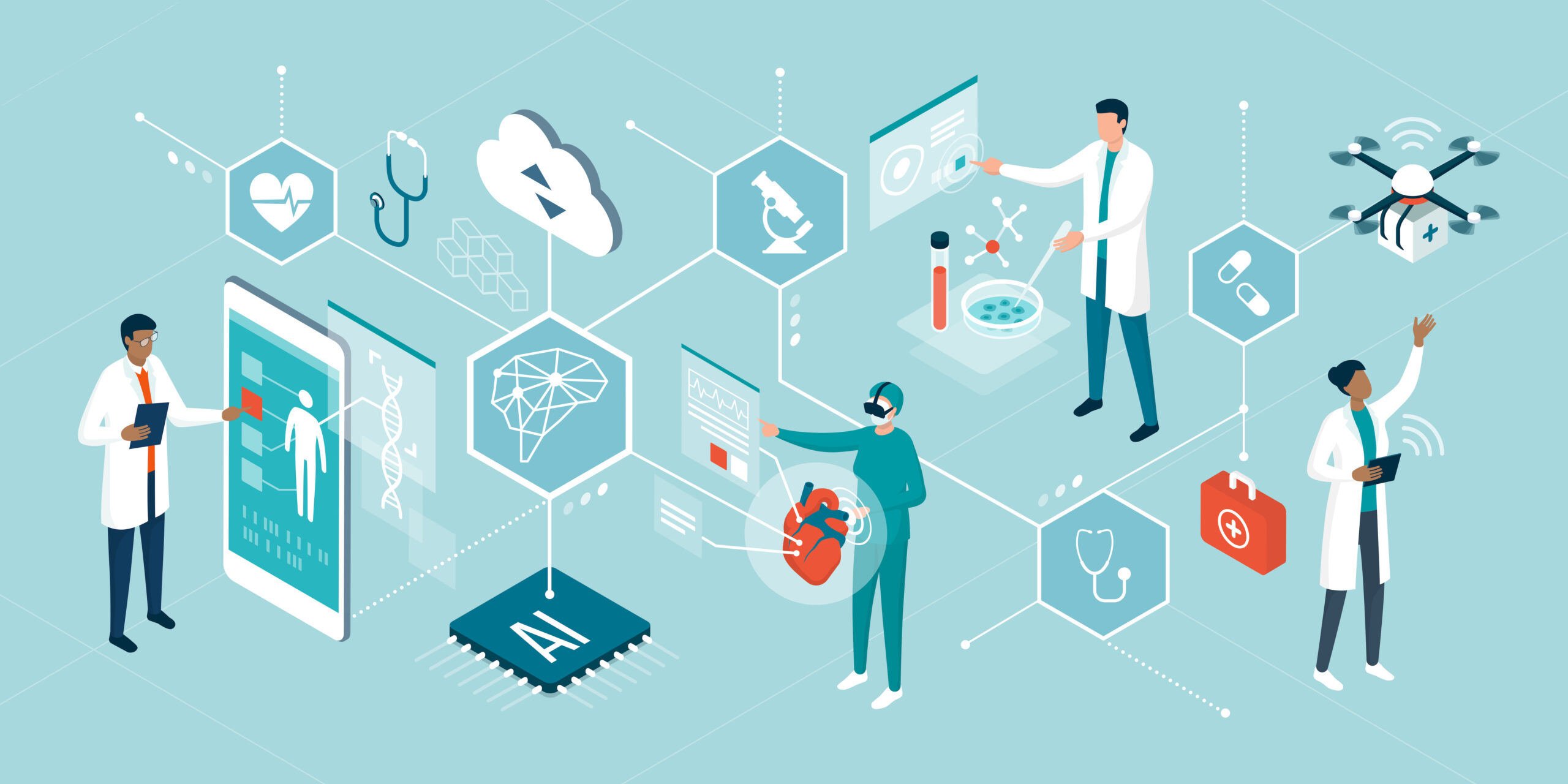2025: The Rise of AI Agents in Healthcare - A Transformation Rooted in 2024
Satya Nadella’s bold insights on AI agents reshaping the SaaS economy offer a powerful lens through which to examine the evolution of healthcare technology. If we break down Software as a Service (SaaS), as Nadella suggests, it is fundamentally a user interface (UI) layered over a database—a structured system that retrieves and presents relevant data for interaction.
In 2024, we saw this principle in action with AI-powered ambient documentation. Companies like Nuance (DAX), Ambience, and Abridge leveraged AI to streamline clinical workflows by integrating with Electronic Medical Records (EMRs). But if we extend this agent-based approach beyond documentation, the implications for clinical decision-making and hospital operations become even more profound.
AI Agents in Clinical Workflows: Beyond Documentation
Today’s EMRs are built on massive databases, with the UI serving as a structured interaction layer that helps clinicians access and input data. However, AI agents have the potential to replace or significantly enhance this interaction layer by dynamically interpreting and acting on real-world inputs.
Imagine an AI agent that listens to the conversation between a provider and a patient, picking up on:
- Verbal language – Symptoms, concerns, and key medical history.
- Body language and tone – Emotional cues that can indicate pain, anxiety, or hesitation.
- Patient history and real-time diagnostics – Pulling lab results, imaging, or past medical data for contextual decision-making.
Instead of the clinician manually navigating multiple EMR screens, the AI agent synthesizes this data and proactively suggests:
- A prognosis or differential diagnosis, based on clinical guidelines and historical data.
- A treatment plan, including recommended medications, lab orders, and follow-up care.
- Real-time documentation, where all clinical notes, prescriptions, and orders are auto-generated and entered into the EMR.
The result? A system where AI doesn’t just assist but actively enhances clinical decision-making, reducing documentation burden, improving diagnostic accuracy, and accelerating patient throughput—a natural extension of the ambient AI movement that took hold in 2024.
AI Agents in Healthcare Operations: A New Era of Decision-Making
While AI’s role in clinical workflows is becoming more clear, 2025 will mark the rise of AI agents in hospital operations. The same principles apply: for any operational improvement to be effective, the input must be discernible, and the impact must be measurable.
Breaking Down the Management Workflow
Hospital managers and executives control billions of dollars in cost and revenue. Their workflows involve hundreds of daily decisions, including:
- Staffing and scheduling – Balancing labor costs with patient demand.
- Supply chain optimization – Managing inventory to avoid shortages and excess spending.
- Bed and capacity management – Adjusting patient flow and resource allocation.
- Financial planning and reimbursement – Navigating payer mix, revenue cycle, and cost containment.
Currently, managers make these decisions based on:
- Experience and institutional knowledge
- Available analytics and dashboards
- Operational bandwidth and crisis management
However, these decisions often occur in silos, with limited real-time feedback loops to measure their impact on KPIs like cost per case, throughput efficiency, or patient satisfaction.
The AI Agent’s Role in Operations
The ideal AI agent doesn’t just provide data and reports—it guides and automates decision-making. In this scenario:
- An AI agent proactively alerts managers to anomalies in cost, staffing shortages, or inefficiencies.
- The agent suggests optimized actions, like adjusting nurse-patient ratios, reallocating OR block time, or shifting supply orders based on utilization trends.
- The agent tracks the impact of decisions in real-time, updating dashboards and reports automatically.
- Eventually, AI agents begin automating repetitive decisions, such as approving shift adjustments or predicting high-risk patient admissions before bottlenecks occur.
At the simplest level, the AI agent functions as a co-pilot, helping managers understand how their decisions impact KPIs. At its most advanced stage, the AI agent becomes an autonomous operator, triggering workflows and enforcing best practices across the organization.
2025: The Year of the AI Agent
If 2024 was about the mainstream adoption of AI-driven documentation and predictive analytics, 2025 will be the rise of AI agents that move beyond customer service chatbots into intelligent decision-making across clinical and operational workflows.
Unlike first-generation AI assistants that merely respond to inquiries, these next-generation AI agents will:
- Proactively surface insights instead of waiting for user input.
- Take action autonomously where appropriate, such as initiating workflow steps.
- Continuously learn and improve, refining recommendations based on feedback and real-world outcomes.
This shift mirrors the evolution of SaaS itself—from static software interfaces to dynamic, intelligent agents that seamlessly integrate into workflows. For healthcare, this could mean:
- A clinician-less EMR experience, where AI handles documentation and decision support.
- A self-optimizing hospital, where operational decisions are continuously adjusted in real time.
- A finance-driven AI layer, ensuring every resource is allocated for maximum ROI.
Ultimately, the next competitive advantage in healthcare won’t just be who adopts AI—it will be who integrates AI agents into the core of their decision-making processes. The winners will be those who move beyond dashboards and automation to embrace true AI-augmented intelligence.
Final Thought: The Defining Healthcare AI Question of 2025
The real question for 2025 isn’t “Will AI improve healthcare?”—that’s already happening. The real question is:
Who will trust AI agents to make decisions on their behalf—and what competitive advantage will that create?
Hospitals, vendors, and startups that embrace this AI-driven paradigm shift will redefine how healthcare operates, scales, and delivers value in the post-SaaS era.



